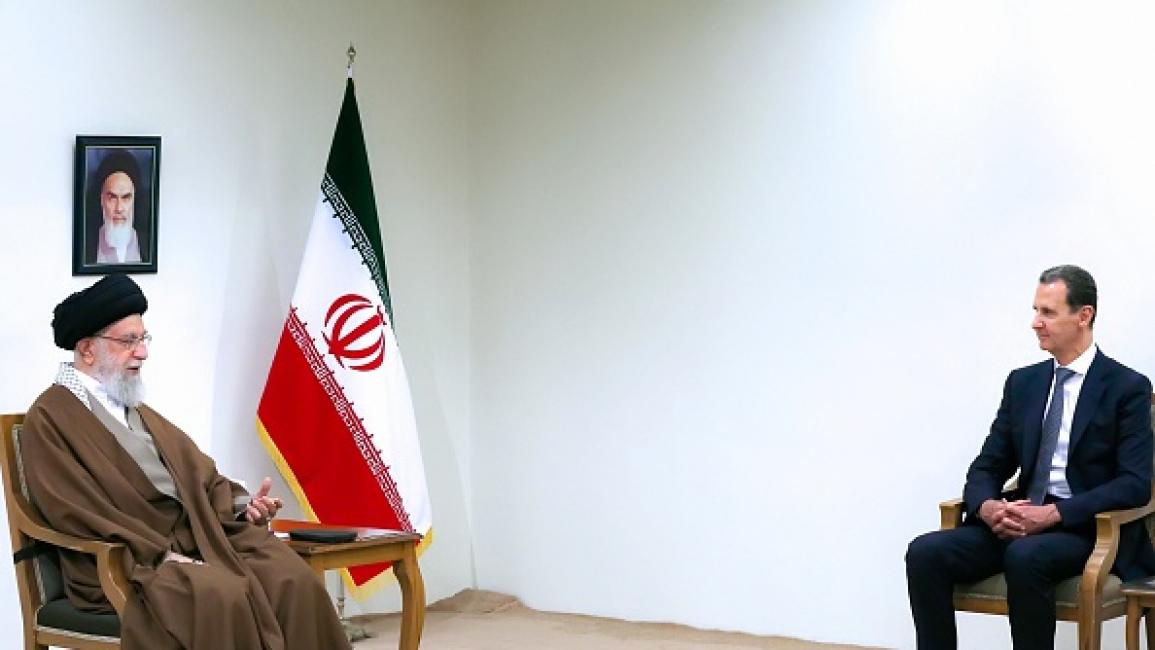Iranian media outlets have circulated a leaked recording of Brigadier General Behrouz Ebtebi, a commander in the Iranian Revolutionary Guard Corps (IRGC), discussing the fall of Bashar al-Assad’s regime and leveling accusations of betrayal against Russia. These provocative remarks have gained widespread attention on Iranian social media. Ebtebi, who served as an IRGC commander in Syria and led the “Virtual World” headquarters of the General Staff of the Iranian Armed Forces, described his country’s experience in Syria as a “significant defeat,” accusing Russia of acting against Iran’s interests. The conservative Iranian website Tabnak published the recording.
Ebtebi asserted that the resistance front “remains strong and undefeated, contrary to enemy propaganda.” He pointed to the recent escalation in Gaza, including rocket launches, the destruction of Israeli tanks, and an increase in Israeli military casualties. Addressing Iran’s threats to retaliate for an Israeli attack on October 26, 2023, Ebtebi stated that “current circumstances do not allow for Operation Honest Promise 3.” He emphasized that the Islamic Republic of Iran had already avenged the assassination of Hezbollah Secretary-General Hassan Nasrallah.
Accusations of Betrayal by Russia
The IRGC commander accused Russia of contributing to Syria’s collapse, stating that after the October 7, 2023, Al-Aqsa Deluge operation, “Russia worked in Syria to serve the Zionist entity’s interests.” Ebtebi alleged that Russia deactivated its radar systems, enabling Israel to target Iran’s “Sadiq” security headquarters in Mezzeh, Damascus. The bombing killed eight Iranian commanders and officers.
Ebtebi also accused Russia of facilitating the assassination of Brigadier General Reza Mousavi, head of the Syrian portfolio in Iran’s Quds Force, and claimed Russia’s “greatest betrayal” was its role in the deaths of Brigadier General Mohammad Reza Zahedi and Brigadier General Mohammad Hadi Haji Rahimi during the April 2024 targeting of the Iranian consular building in Damascus.
The commander further alleged that Russia consistently sought to marginalize Iran in Syria. He criticized the Russian Air Force for targeting homes and deserts instead of Tahrir al-Sham headquarters and refusing to supply Iranian forces with weapons to counter opposition advances in Homs and Hama. According to Ebtebi, a plane carrying Iranian arms was denied entry into Syria after crossing Iraqi airspace during the siege of Homs.
“The fall of the Syrian Baathist regime did not come as a surprise to us,” Ebtebi said, emphasizing that Iranian officials had repeatedly warned Assad and the Syrian military leadership about the potential for state collapse and the necessity of reforms. He highlighted worsening conditions in Syria over the past two years, including a lack of basic services and widespread corruption within the regime.
Corruption and Economic Collapse
Ebtebi pointed to pervasive bribery within the Syrian regime, including among senior military officials and Maher al-Assad, Bashar’s brother. He recounted an instance when an Iranian military commander reported bribery attempts to Syrian military intelligence, only to find that the intelligence official himself had accepted bribes. Ebtebi argued that this widespread corruption significantly contributed to Syria’s economic collapse.
Bashar al-Assad’s Distancing from Iran
The IRGC commander also discussed the growing distance between the Assad regime and Iran. He criticized Assad for failing to properly receive Iranian President Ebrahim Raisi during an April 2023 visit, where Iranian flags were absent, leaving the Revolutionary Guard to handle the reception. In contrast, Assad welcomed Emirati Foreign Minister Abdullah bin Zayed with full honors, including Emirati flags from the airport to the presidential palace.
Ebtebi claimed that Bashar al-Assad’s wife encouraged him to prioritize relationships with Arab states over Iran. He alleged that Assad exerted significant pressure on Iranian personnel in recent months, expelling more than 80% of Iranian embassy staff, engineers, and teachers from their residences in Syria.
In a meeting with Assad shortly before the fall of his regime, Iranian military commanders requested that he engage Russia to facilitate the transport of Popular Mobilization Forces to Syria in light of Israeli threats. Assad reportedly responded, “You can communicate with the Russians yourselves.”
This article was translated and edited by The Syrian Observer. The Syrian Observer has not verified the content of this story. Responsibility for the information and views set out in this article lies entirely with the author.


